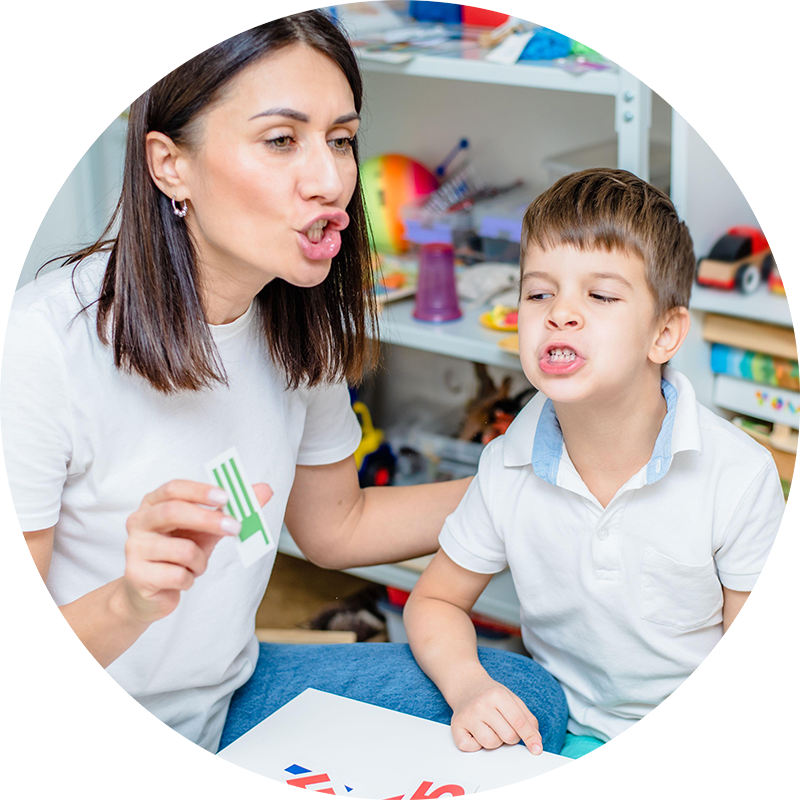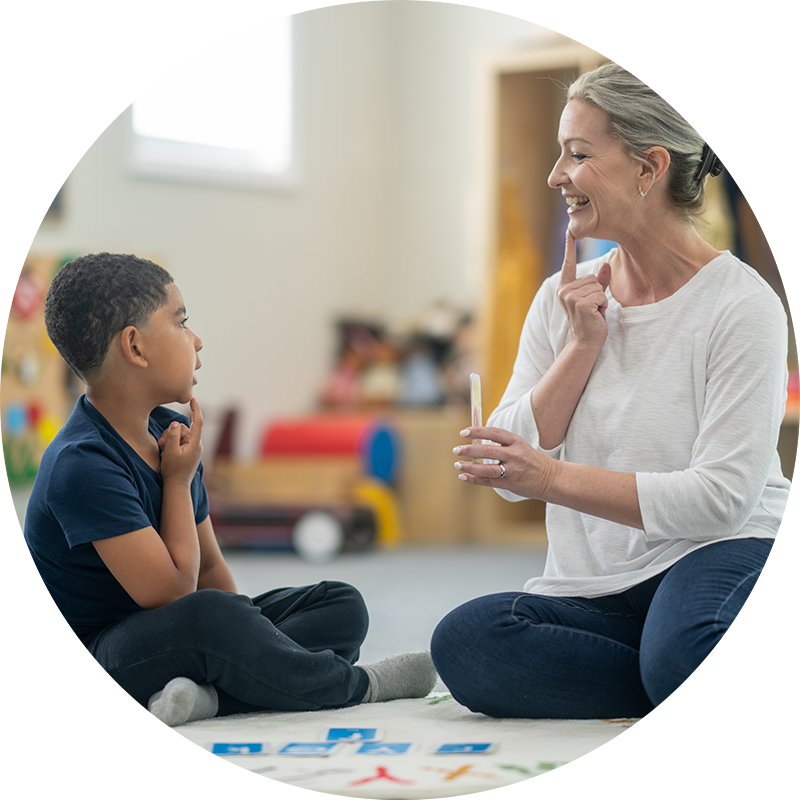
Speech therapy to strengthen language, social, and communication skills
At Exploration Kids Therapy, our pediatric speech-language therapy helps children find their voices and connect with the world around them. We work with children who experience challenges in speech sounds, language development, fluency, or social communication. Through personalized sessions that incorporate play, interaction, and family collaboration, our therapists help each child build clear communication, confidence, and understanding. Whether your child is learning their first words or refining advanced language skills, we support meaningful progress at home, school, and in daily life.
Speech therapy helps children develop the ability to express themselves clearly and understand others. By improving speech sounds, vocabulary, and sentence structure, children gain the communication skills they need to participate confidently in everyday life at home, school, and play.
Speech therapy supports social communication by helping children learn how to engage in conversation, take turns, and interpret social cues. As their communication grows, so does their confidence in connecting with peers, teachers, and family members.
Strong communication skills are the foundation for learning. By improving comprehension, listening, and expressive language, speech therapy helps children succeed in reading, writing, and classroom participation — setting them up for long-term academic growth.

Speech therapy is a collaborative process that evolves with your child’s needs. Our therapists partner closely with families, educators, and other professionals to reinforce skills across environments. Regular re-evaluations ensure therapy remains effective, engaging, and focused on long-term success.
Pediatric speech therapy helps children develop the communication skills they need to express themselves, understand others, and connect confidently with the world around them. Therapy may focus on speech sounds, language development, fluency, voice, or social communication.
The evaluation includes assessments of speech sounds, expressive and receptive language, fluency, voice, and social communication. The therapist gathers input from parents, teachers, and caregivers to create a complete understanding of your child’s strengths and areas for growth.
Speech therapy can begin as early as toddlerhood and continue through adolescence. Services are customized for each developmental stage, whether your child is learning first words, building vocabulary, or refining complex communication and social skills.
Sessions typically last 30–60 minutes and may be scheduled weekly or more often, depending on your child’s individualized treatment plan and progress.
Yes! Speech therapy sessions are engaging, interactive, and play-based. Children participate in fun activities like games, stories, and conversations that make learning communication skills enjoyable and motivating.
Your therapist will monitor progress toward your child’s communication goals and share updates regularly. You’ll receive guidance and strategies to help your child continue practicing speech and language skills at home.
Absolutely. Speech therapy supports communication in both social and academic settings. By improving listening, conversation, and comprehension skills, children gain confidence in interactions with peers and success in classroom participation.
The length of therapy varies for each child and depends on their goals and progress. Some children need short-term support to reach specific milestones, while others benefit from ongoing therapy to strengthen and maintain communication skills.
Therapists provide home practice strategies, conversation prompts, and language-based games for families to use between sessions. Regular practice helps reinforce therapy goals, boost confidence, and encourage steady progress in real-life situations.